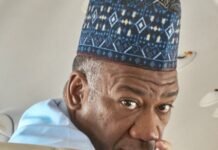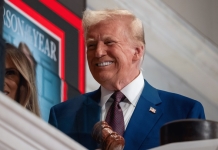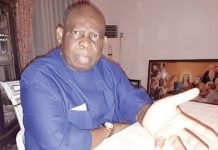A Question and Answer session by writer Chike Ofilli seeks in this piece to clarify a number of general misconceptions about Igbo. Let every Igbo read and pass this educational piece to their children.
Questions & Answers on the IGBO
Honestly clearing basic misconceptions
Q Is Southeast and Igboland the same thing?
Ans Not at all. Southeast is only about 3/5th of Igboland. Igboland covers the whole of Southeast, parts of Rivers, Delta, Edo, Cross River, Benue, Kogi and Akwa Ibom states.
Q Why were we taught in schools that Igbo people are Easterners?
Ans It is both an unfortunate parroting by such teachers and careless adoption by Igbo educated (elite) class. Igbo people come from Southern Nigeria and not Eastern Nigeria. It may be correct to say that the Igbo are found predominantly in Eastern Nigeria. However, by saying that the Igbo are Easterners, the implication is that the Igbo in parts of Western Nigeria, numbering about 2.5 million (Agbor, Ogwashi Ukwu, Ibuzo, Okpanam, Asaba, Orimili, Ndokwa, Anioma, etc) are then not Igbos! The best known Igbo anthropologist Professor Mike Onwuejeogwu is from the (Mid)-western part of Nigeria, Chukwuma Nzeogwu, Dennis Osadebe, Okonkwo Adibe (the famous musician), Sony Odogwu, etc. are all from the (Mid)-western part of Nigeria. They are no less Igbo than those who live in the eastern part of Nigeria. The correct answer to your question is “the Igbo come from Southern Nigeria.”
Q Why do some Igbo refer to themselves as “core Igbo?”
Ans That is clearly wrong. Nobody is core and others peripheral. All Igbo are the same. It is both arrogant, thoughtless and insensitive for anybody to regard others as marginal.
Q Is Igboland landlocked?
Ans Not at all. Igboland stretches from Port Harcourt (Igweocha) to Agbor. The Atlantic Ocean washes the shores of Igboland at the islands of Opobo and Bonny. Africa’s second-largest river – River Niger, traverses Igboland with one part of Igboland in the East and another part in the (Mid)-west of Nigeria. Oguta Lake has the potential of accommodating large ships and could be made a navigable port. If Igboland is landlocked, then all Nigeria is landlocked.
Q Is there oil in Igboland?
Ans Yes, indeed!! There is a lot of oil & gas in Imo, Abia and currently in present Anambra & Enugu States, and Igbo areas in Rivers and Delta States. Besides, Igboland has many other natural resources, including coal, iron ore, limestone, Lead, zinc, brine, glass etc.
Q Are the Igbos a nation or a tribe?
Ans The Igbo is a nation and a very large one. There are many dialects or tribes in the Igbo nation, just as you have many tribes of Israel.
Q Why do some Ikwerre and other non-Southeastern Igbos say they are not Igbo?
Ans First, it is not up to them to say what they are and what they are not. When God created them, He did not ask them who they wanted to be. He just created them Igbo. The only way you’ll know who belongs to what ethnic group in Nigeria is the name and what language the name comes from. Anybody whose name is Amadi, Onyeri, Eke, Odili, Wanodi (Nwanodi), Nyesom or Nkem does not need to tell you who he or she is. He/she is Igbo, notwithstanding their politics.
Q But they claim that their language is Ikwerre not Igbo.
Ans That is politics too. Ikwerre is a dialect of the Igbo language, just like a Ngwa man speaks Ngwa Igbo, Arochukwu speaks Arochukwu Igbo, Ika speaks Ika Igbo, Ibani speaks Ibani Igbo etc.
Q Some people say that the Igbo language is not complete, is it true?
Ans No language in the world is complete in and by itself. All languages borrow from others. The Igbo language is quite rich. It has inexhaustible, rich linguistic features like idioms, proverbs, aphorisms, sayings, anecdotes, riddles, folklore, etc. The Igbo language is one of the major languages of the world spoken by millions of people.

Chike Ofilli – the author
Q How many are the Igbo?
Ans The Igbo are very numerous. There is an educated guess that if Nigeria’s census is properly enumerated, the Igbo could easily be the largest ethnic group in the country. They may number up to 40 million. Right now everything is merely in the realms of speculation. Nobody knows the true stratification or ethnic populations in Nigeria. In Nigeria, the Igbos are the next largest population besides the indigenous population of every community. They are found in large numbers in the diaspora in nearly all foreign countries of Africa and the world more than any other ethnic group in Africa.
Q Do the Igbos have a culture of their own?
Ans Yes indeed. Igbo culture is perhaps one of the richest and all-encompassing cultures in this world. Igbo culture always observes the temporal and the spiritual aspects of cosmology. The study of Igbo culture reveals that it is extremely deep, original and ancient.
Q Why do the Igbo wear Yoruba Agbada and Hausa babban riga but the Yoruba and the Hausa do hardly ever wear Igbo national dress?
Ans Unfortunately this is the observed scenario especially by politicians of Igbo extraction. The Igbos have very attractive and resplendent national dresses. They come in assortments that are extremely dignified but because of the widely travelled lifestyle of Igbos, they take up foreign cultures more readily than other Nigerians, and they seem not to care that others do not reciprocate their carefree attitude to life. Most other ethnicities promote their cultures and show off what makes them unique. Incidentally, it is still the same so-called educated, elite Igbo political class who should know better that mostly behave in such disgraceful way.
Q Why do the Igbos call themselves Biafrans?
Ans Great question. Some people have the idea that Biafra originated from the Bight of Biafra but that is wrong. Biafra was the national name of Igboland given to Igbo by the Portuguese, just as Nigeria was named by the British. There was the Kingdom of Biafra that ruled most of ancient subtropical Africa about 50,000 years ago. Unfortunately, nobody talks or writes about it these days for whatever reason perhaps because Portugal lost the colony right of Biafra to Britain who buried it, in other to promote Nigeria amalgamation. It is in the ancient maps of the world which you can Google for more information.
Q Were the Igbos also taken into slavery during the slave trade?
Ans Yes. The Igbo slaves themselves gave an account of their travails in slavery. Olauda Ekwuano – an Igbo ex-slave who bought back his freedom in Britain was the first slave to write about his experiences in slavery. His book is a classic on this topic. It’s worth the read if you find it. Other Igbos who were sold to America revolted and there is a myth that some walked on water and returned to Africa. Several books have been written about this. One of such books is “Ibo Landing.” It’s available in Barnes & Noble and other major bookstores. In Haiti, the Igbos settled there and refused to be colonized by anybody. There are many places where the Igbos left their mark or their signature.
Q How did the Igbo know days and years?
Ans The Igbo invented an accurate, if not the most accurate calendar called “Iguafo Igbo” (Igbo Calendar). In the Igbo calendar, there are four market days – Eke, Afor, Nkwo and Orie that make one native week. Four days make one Igbo native week, seven such native weeks make one Igbo month, and thirteen months make one year. There are 28 days for each month, with the last month having 29 days. Each month starts the same day as the previous. Igbo calendar forms the perfect astronomical alignment with the cosmos and regulates the seasons, agriculture, navigation, astrology, geography, mathematics, travel, etc.
Q Did the Igbo have their own alphabet?
Ans Yes, indeed. It is called “Nsibidi.”
Q How about Mathematics; did the Igbo know Mathematics?
Ans Yes, indeed. There are such inventions as “Okwe” and “Mkpisi” which the Igbos used to resolve numerical calculations.
Q Did the Igbo know anything about banking?
Ans Yes. Igbo banking was more in the nature of Savings and Loans. The authentic Igbo savings and loans invention called “Isusu’ in which contributions are pooled by several contributors each native week and one person, who has the need, collects it. It is still in practice to this day. Igbo slaves took this invention to the Caribbean Islands where they still practise it and call it “Sue Sue.”
Q Some people say that Igboland is too small for the Igbos, that they have no alternative than to live as Nigerians: is this true?
Ans False narrative! Igboland is a large country. Do every Igbo need to stay and work in Igboland? No. Everywhere in the world, some citizens of every country stay home while others venture abroad in search of business, career development opportunities. Igboland is large enough for the Igbo. It is a very resource-rich and climatically hospitable part of the world. It has rich soil for agriculture, abundant rainfall, all-year-round sunshine, and tableland in many parts. Sone of its topological scenery of one of the most fascinating in the world. Its land space and population are more than that of over half of the present countries of the world.
Q Where did the Igbos come from?
Ans That question is still being asked. There are very intriguing theories or histories now being studied. You may have heard of the Jewish and Egypt angle which are connected, and the Origin of Man angle. This twenty-first century, hopefully, will resolve the mystery.












